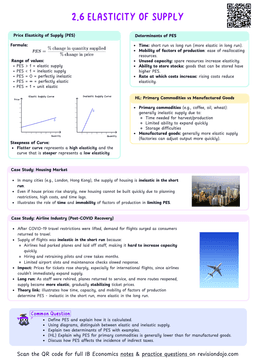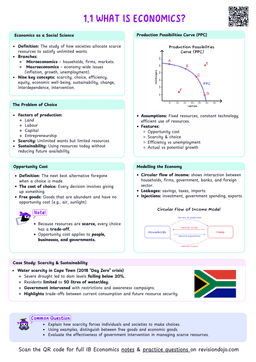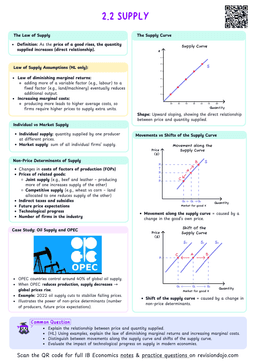Exchange rate systems can be compared in a few different aspects:
- Certainty for Consumers
- Role of Foreign Reserve
- Impact on inflation
- Flexibility for policy-makers
- Effects on Speculation
- Correction of Current Account Imbalances
Certainty for Consumers
- Fixed:
- Under a fixed exchange rate system, consumers have greater certainty that the exchange rate will remain stable.
- This stability allows them to make long-term plans with more predictable outcomes.
- Floating: Under floating exchange rates, consumers face low certainty, as market forces can cause large fluctuations in currency values, making it difficult to plan investments and business activities.
- When the Hong Kong dollar is kept in a fixed exchange rate system pegged to the US dollar, consumers and businesses in Hong Kong have certainty about exchange rates.
- This stability allows households to plan long-term mortgages and companies to sign international contracts without worrying about sudden currency fluctuations.
- In contrast, during the sharp depreciation of the British pound after the 2016 Brexit referendum, UK consumers faced uncertainty as the falling pound raised the price of imports like food, fuel, and holidays abroad, making long-term financial planning more difficult.
Role of Foreign Reserve
- Fixed:
- To keep the exchange rate fixed at a certain level, central banks must frequently intervene by using foreign reserves.
- However, these reserves are limited and cannot sustain such a system over the long term.
- Floating: In this system, foreign reserves do not play a role, as central banks do not need to use them to maintain the exchange rate at the desired level.
Impact on Inflation
- Fixed:
- Countries with a fixed exchange rate and high inflation experience a fall in demand for exports while imports rise, leading to a trade deficit.
- To control inflation, governments may adopt contractionary fiscal policies such as reducing spending or raising taxes, but these measures can slow economic growth and risk causing a recession.
- Floating:
- If a country has a higher rate of inflation than its trading partners, it will likely face a trade deficit, leading it to depreciate its currency to boost exports.
- However, this can trigger cost-push inflation as imports become more expensive and the cost of production rises.
Flexibility for Policy-Makers
- Fixed: Fixed exchange rates do not provide flexibility to policy-makers, as they must constantly intervene to maintain a stable exchange rate.
- Floating: Policy-makers have high flexibility under a floating exchange rate system, allowing authorities to pursue their economic priorities without spending resources on maintaining a fixed exchange rate.
- Under the fixed exchange rate in the Eurozone, member countries such as Greece could not devalue their currency during the sovereign debt crisis (2010–2012).
- Lacking flexibility, they were forced into harsh austerity measures instead of using depreciation to boost exports.
- By contrast, when the British pound operates under a floating exchange rate, the Bank of England has the flexibility to focus on domestic priorities like adjusting interest rates to control inflation or stimulate growth, without committing resources to defend a fixed currency level.
Effects on Speculation
- Fixed: Speculation is almost non-existent under a fixed exchange rate system, since the exchange rate remains stable and there are no fluctuations for traders to profit from.
- Floating: There is a high level of speculation under a floating exchange rate system, as market forces cause frequent fluctuations in exchange rates, giving speculators opportunities to profit from these changes.
Correction of Current Account Imbalance
- Fixed: It is very difficult for countries to correct current account deficits under a fixed exchange rate system, since they cannot use currency depreciation to make exports cheaper and imports more expensive.
- Floating:
- Floating exchange rates allow market forces to correct surpluses or shortages of the domestic currency, helping to balance trade.
- A trade deficit is corrected through currency depreciation, while a trade surplus is corrected through currency appreciation.


